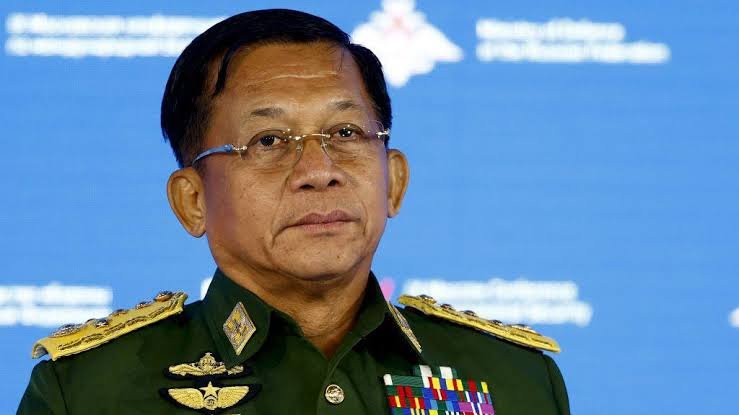The International Criminal Court (ICC) has announced plans to issue an arrest warrant for Myanmar’s military leader, Min Aung Hlaing, in connection with the 2017 crackdown on the Rohingya Muslim minority.
This campaign forced around 700,000 Rohingya to flee to Bangladesh, with reports of mass killings, sexual violence, and widespread destruction of villages.
The ICC prosecutor, Karim Khan, stated that there is evidence suggesting Min Aung Hlaing bears responsibility for crimes against humanity, including deportation and persecution of the Rohingya in Myanmar and across the border in Bangladesh. Although Myanmar is not a party to the ICC, the court has jurisdiction due to Bangladesh’s membership and the cross-border nature of the crimes.
This development comes amid ongoing efforts to hold Myanmar accountable for human rights violations. The International Court of Justice is also reviewing a case brought by Gambia, accusing Myanmar of genocide.
Min Aung Hlaing, who took control of Myanmar following a 2021 military coup, has faced widespread allegations of human rights abuses. Thousands of civilians have reportedly been killed under his rule, and military campaigns have targeted ethnic minorities and political opposition with airstrikes and mass killings.
Experts and activists have welcomed the ICC’s move but expressed skepticism about its immediate impact. While some view the arrest warrant as a symbolic step toward justice, others argue that it could influence future negotiations, particularly if the military faces significant setbacks.
Human rights organizations have underscored the importance of accountability. Amnesty International emphasized that Min Aung Hlaing has been at the center of multiple human rights crises in Myanmar and warned that continued impunity could lead to further violations.
The ICC has hinted that this is just the beginning, with plans to pursue charges against other high-ranking officials involved in crimes against humanity. Activists have called for systemic change in Myanmar, urging justice not only for the Rohingya but for all victims of the military’s actions.



